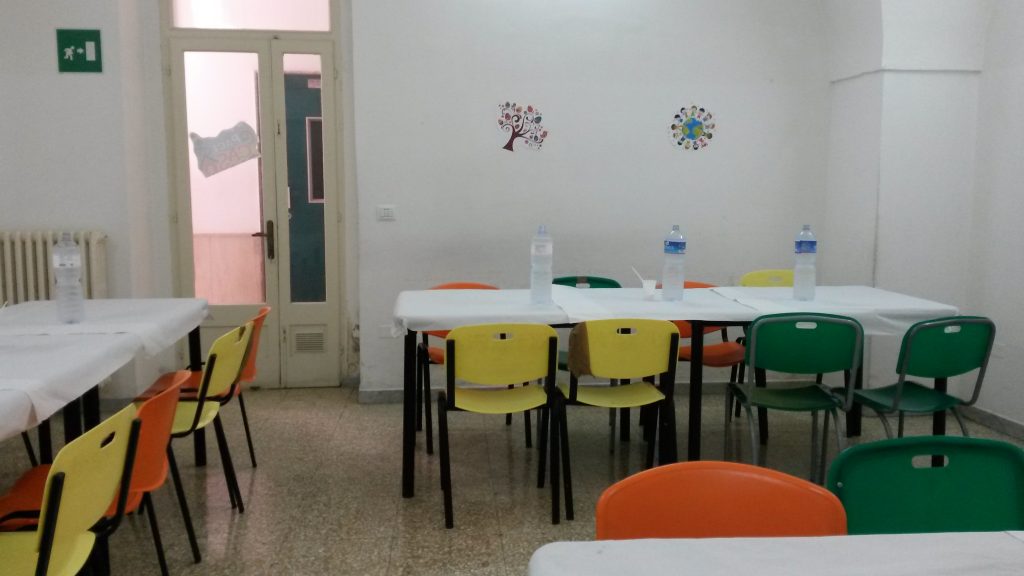The Case of Caritas Soup Kitchens (Brindisi)
By Antonio Maria Pusceddu
The Caritas Soup Kitchen (Mensa Caritas) opened in 1995 with a relatively low number (less than 50) of regular recipients, mostly locals. Nowadays the soup kitchen serves around 300 daily meals, divided between some 170 “external” meals (take away meals) and 130 “internal” meals (people who consume the meal in the soup kitchen hall). “External” meals are consumed mostly by “locals”, while “internal” meals are consumed mostly by foreigners, many of them day laborers in the surrounding countryside (a large group comes from countries in central west Africa).
Besides ordinary (but regular) volunteers, the services provided by Caritas are run by 10 or 12 permanent “volunteers” selected among young people (18-28 years old) who apply to the National Civil Service (SCN), and receive a monthly stipend of 433 Euros during their one year service. For unemployed youngsters, this is very often one of the few options to get a cash-income.
Every week-end a parish church Caritas is entirely in charge for the service (providing the food, preparing and serving the meal). Each parish church Caritas has its own turn in a shift of about every 45 days. Parish churches have also their own food banks, that serve exclusively (or are supposed to do so) their own neighborhood. Staple food comes from state-aid provisions and distribution has to be carefully documented (recipients are generally entitled only if they provide their ISEE). Staple food (and clothing a well) is also collected through donations throughout the parish and is not subject to any formal kind of record. These are the two main circuits that regulate food distribution, one “formalized” through “bureaucratic procedures” (about which volunteers complain) and the other entirely managed and organized through volunteers’ practices and following self-developed rules. In the last few years parish churches are also endowed with a meager sum of money they receive from an “anti-crisis fund” (established by the Conferenza Episcopale Italiana). The sum of money they receive, according to the “needs” of each parish church Caritas, is used to cover recipients’ expenses (e.g. bills) that have to be properly motivated.




